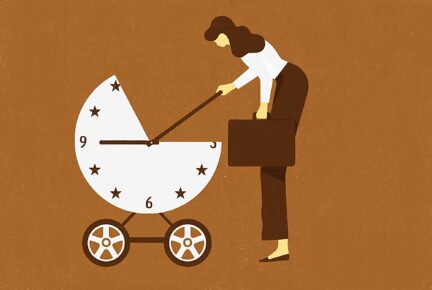On September the 2nd, 2022, in a welcome move, the Indian government announced a 60-day special maternity leave for women who give birth to stillborn babies or lose a child soon after delivery.
This order by the Department of Personnel and Training (DoPT) is, however, only applicable to central government employees appointed to the civil services and posts in connection with the affairs of the Union of India and not women working in private organizations.
This decision has been taken considering new mothers need TLC (tender loving care) as much as newborn babies, especially those mothers who have lost their newborn child to stillbirth. The government has aimed to address the trauma caused by this grievance and the impact it has on the mother’s mental health.
According to the order,
“The condition for death of a child soon after birth may be defined as up to 28 days after birth. A baby born with no signs of life at or after 38 weeks of gestation may be defines as stillbirth.”
This order, however, only includes female employees who have less than two surviving children.
The special leave will be granted only if the delivery takes place in an authorized hospital. In this case, an authorized hospital is defined as a government or private hospital empaneled under the Central Government Health Scheme (CGHS). In case of emergency delivery in a non-empaneled private hospital, the production of an emergency certificate has to be presented.
This move comes at a time when addressing issues pertaining to mental health has become crucial in stabilizing different aspects of people’s lives, including constructive behaviours, emotions and thoughts. Therefore, giving mothers much-needed time off from what may be a high stress environment, such as the workplace, can do wonders for their mental health. Pregnancy loss can often induce a deep sense of grief, feelings of guilt, shame, failure and loneliness in women, while some mothers can even develop depression or anxiety, which is why more focus is required on the trauma caused by this experience.
Pakistan has also been active in providing similar rights to working mothers. While India’s new order has just come into force, Pakistan has already taken a step forward in this direction by providing leave to mothers who have given birth to stillborn babies since 2020. The Maternity and Paternity Leave Act 2020, a Bill passed in the Senate by Quratulain Marri, clearly states the rights of new parents (both mothers and fathers) working in public and private establishments under the administrative control of the federal government. Under the same Bill, the term “child” includes a stillborn as well as a child in the womb of a pregnant employee. Furthermore, the duration of the paid maternity leave is 180 days (6 months) for the first birth, 120 days (4 months) for the second birth and 90 days (3 months) for the third birth.
Paid paternity leave applies to a male employee whose wife is pregnant but the duration of leave for the male employee cannot exceed 30 days (1 month).
It is indeed commendable to see the neighbouring nations address this matter at a legal level as it shows their sensitivity towards issues pertaining to working women, to some extent. The next step would be to urge private organizations to implement these developments within their respective structures. With the significant increase in the number of working women, appropriate legal rights need to be granted so that personal lives and obligations do not have to be overlooked. A system that is sound needs to be facilitated so that work-life balance can be respected. It is hoped that these new laws prove beneficial and serve their purpose as intended.
The views expressed in this article are those of the author and do not necessarily represent the views of CourtingTheLaw.com or any other organization with which she might be associated.



Indeed a welcome move. The paid time-off should’ve been more. Even when healthy babies are born both parents should also been given babysitters allowances and daycare facilities’ allowances similar to orderly allowances. Paternity leave could be more so that working women can transition back to work. More power to such humane lawmakers for such therapeutic lawmaking.
The inclusion of women in the workforce required special legislation for married women and especially mothers